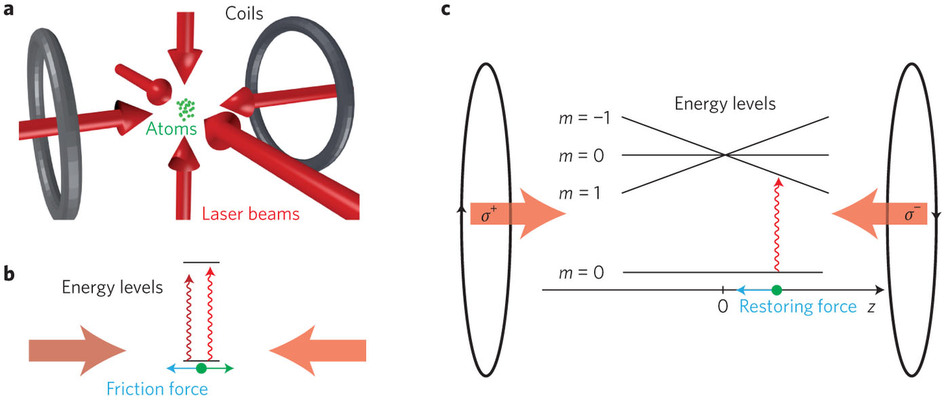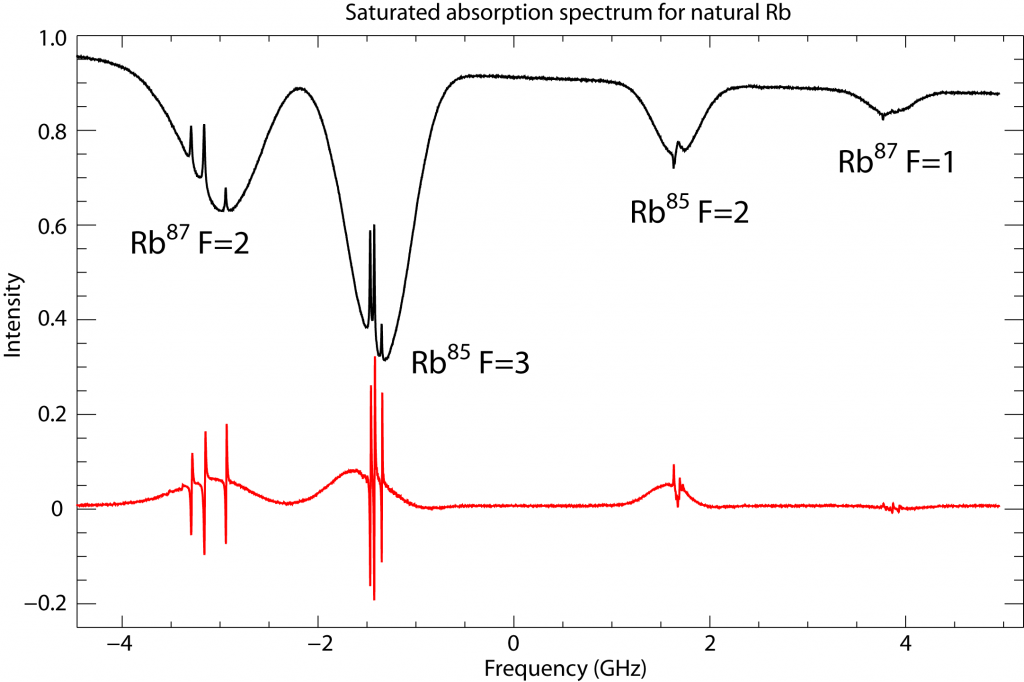Working on this project: Rhuthwik Sriranga
Inhaltsverzeichnis
The experiment
Video 1: The video above shows a cloud of atoms captured in a magneto-optical trap as the final stage of this project.
The aim of this Advanced Laboratory Course is the realization of a so-called magneto-optical trap (fig.1) of Rb atoms. A video of a trapped cloud of rubidium atoms can be seen in video 1. This is the workhorse for basically all cold atom experiments and the basis for many current atomic physics, quantum optics, quantum information and experimental quantum mechanics research.
Basic understanding of spectral lines of Rb (fig.2) is quite important in order to manipulate atoms.

Specific topics covered in the course
- Design and assembly of UHV systems
- Vacuum pumps and gauges
- Laser technology, light polarization and manipulation
- Alignment of laser beams and the optics
- Atomic energy level structure and laser stabilization techniques
- Stabilization electronics and detection techniques
- Light-atom interaction and laser cooling
- Limits to laser cooling, other cooling and trapping techniques, Bose-Einstein condensates

Structure of the project
This course targets undergraduate students, typically after 3rd year – first year of Master`s. However, this course is open for all who have studied quantum mechanics and attended the experimental physics 5a lecture (Atomic and quantum physics). The project is also offered separately as technical training unit for PhD students within the graduate school of excellence MAINZ.
- duration: 6 to 8 days
- requisite: experimental physics 5a (Atomic and quantum physics)
- successful participants will be awarded the equivalent of 3 advanced laboratory courses
- a total of 2 students can work in parallel on the experiment
Acknowledgement
The development of the leading concept is funded by the Gutenberg Lehrkolleg. The graduate school of excellence Mainz, the excellence cluster PRISMA, the Institute of Physics, the research unit QUANTUM and the advanced students lab financially support the necessary lab equipment.



